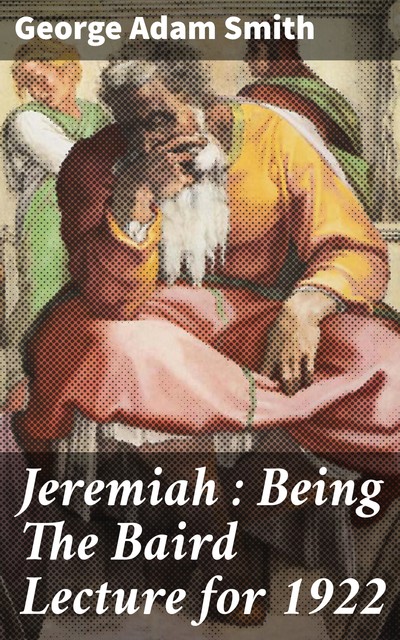Мы используем файлы куки, чтобы Bookmate и наши рекомендации работали лучше.
Подробнее на странице Политика Cookies
Подробнее на странице Политика Cookies
Принять все Cookies
Выбрать cookies
In “Jeremiah: Being The Baird Lecture for 1922,” George Adam Smith presents a profound examination of one of the Bible's most complex prophetic figures, Jeremiah. Through a blend of theological insight and literary analysis, Smith delves into the socio-political backdrop of ancient Israel, articulating the prophet's struggles against a disobedient nation and a perplexed divine call. His scholarly approach weaves together an eloquent narrative infused with poetic elements reflecting Jeremiah's own lamentations, making the text both accessible and rich in academic rigor. Smith's lecture stands as a pivotal contribution to biblical scholarship, situated in the early 20th century discourse that sought to illuminate the intersection of faith, prophecy, and societal turmoil. George Adam Smith, a prominent Scottish theologian and scholar, was deeply engaged in biblical studies and the complexities of religious thought. His experiences in a rapidly modernizing world likely influenced his exploration of Jeremiah's plight, as the prophet's themes of isolation and moral clarity resonate with Smith's own considerations of faith in a changing society. Smith'Äôs other works, notably in biblical criticism, frame his comprehensive understanding of the historical and spiritual significance of Jeremiah's message. This lecture is highly recommended for scholars, theologians, and readers seeking to deepen their understanding of the prophetic tradition within the Hebrew Bible. Smith's insightful analysis not only unpacks Jeremiah's character but also encourages a broader contemplation of the role of prophets within the societal fabric of their times. A must-read for anyone invested in theology, biblical history, or literary interpretations of scripture.
больше
317 бумажных страниц
- Правообладатель
- Bookwire
- Дата публикации оригинала
- 2020
- Год выхода издания
- 2020
- Издательство
- Good Press
Уже прочитали? Что скажете?
👍👎
fb2epub
Перетащите файлы сюда,
не более 5 за один раз


